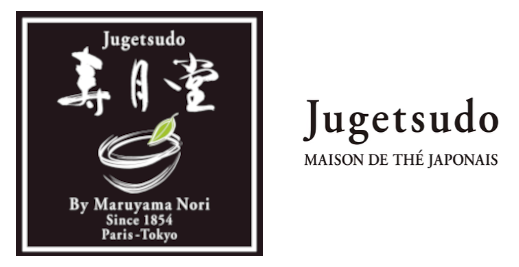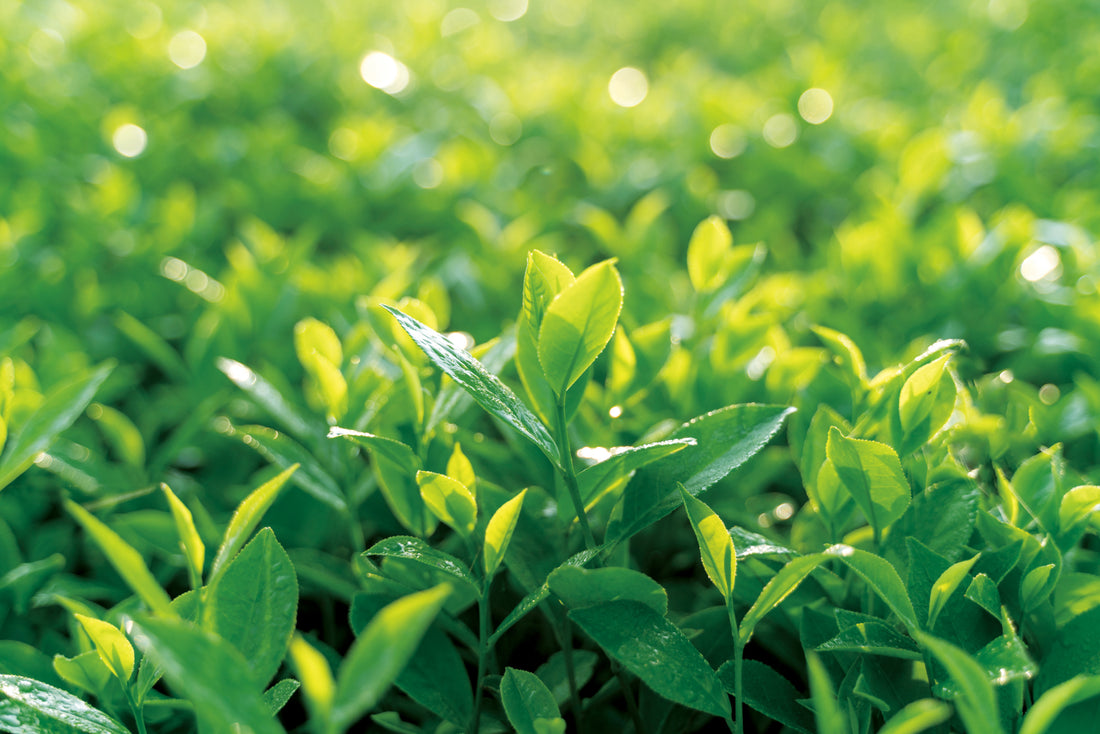Theanine: A Hidden Treasure of Japanese Tea
At Jugetsudo, our passion for Japanese tea leads us to explore and share with you the wonders contained in our products. Today, we are looking at one of the most fascinating components of green tea: theanine. Discover why this molecule is an integral part of the sensory and well-being experience offered by our teas.
What is Theanine?
Theanine is a rare amino acid, mainly found in the tea plant (Camellia sinensis) and some mushrooms such as Boletus badius. It is an essential part of the richness and complexity of the taste of green tea. In dried tea leaves, theanine represents between 1% and 2% of their composition. This component is particularly abundant in high-quality green teas such as Gyokuro and Matcha. Theanine is synthesized in the roots of the tea plant and transported to the leaves where it accumulates. When theanine comes into contact with sunlight, it is transformed into catechin. Thus, to preserve this precious molecule, leaves intended for the production of high-quality teas are often shaded before harvest, thus limiting their exposure to direct sunlight.The Benefits of Theanine: Taste and Psychological Effects
Taste-wise, theanine is one of the keys to umami, that fifth flavor often described as savory or delicious. It helps balance the sweetness and richness of green tea, softening the bitter notes that might be found in other types of tea.
Beyond its effects on taste, theanine also has remarkable psychological properties. After ingestion, it is rapidly absorbed in the small intestine and can cross the blood-brain barrier, allowing a direct action on the brain. Theanine consumption has been shown to stimulate the production of alpha waves in the brain, associated with a state of deep relaxation. In fact, about 30 to 40 minutes after consumption, theanine promotes a feeling of calm and reduces anxiety. Studies show that even at low doses (50 mg), it induces a relaxing effect in people with little tendency to anxiety, while higher doses (200 mg) are beneficial for those with more pronounced anxiety.
Caffeine and Theanine: A Powerful Duo
Green tea contains not only theanine, but also caffeine, often referred to as theine when present in tea. The combination of these two substances creates a unique synergistic effect. While caffeine stimulates wakefulness and alertness, theanine counteracts this effect by inducing relaxation without sedation. Together, they promote improved cognitive function and mood, providing calm and lasting energy.
Where to Find Theanine in Japanese Green Tea?
The Japanese green teas with the highest theanine content are often those that benefit from specific cultivation aimed at increasing its concentration. For example, Gyokuro and Matcha are made from tea leaves that have been shaded for at least two weeks before harvest. This technique not only enriches the tea with theanine, but also reduces the content of catechins responsible for bitterness, which enhances the tea's umami profile. At Jugetsudo, we offer you a selection of these fine teas, each bearing the unique signature of theanine.
To discover our Gyokuro ranges click here ←
To discover our Matcha ranges click here ←
---
In conclusion
Theanine is more than just a component of green tea. It is a gateway to a soothing and balanced taste and sensory experience. We invite you to discover this wonderful molecule through our range of Japanese green teas at Jugetsudo, where each cup is an invitation to serenity and delight.We look forward to sharing these treasures of Japanese tea with you.

